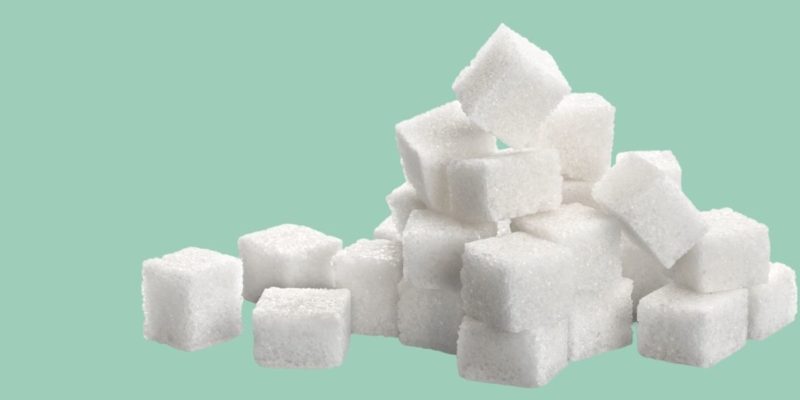13 of the Best Natural Anti Inflammatory Foods

Inflammation get’s a lot of bad press, but it is actually a natural bodily process that acts to speed up the healing process and eliminate the initial cause of any injury to your cells and tissues.
When the body is under threat from an illness or injury, the immune system kicks into gear, releasing white blood cells and anti-inflammatory compounds to deal with the problem. Like many things however, too much inflammation can indeed be a bad thing.

In some cases, the body’s immune system triggers inflammation when there is no need for it, which can lead to a range of issues and autoimmune conditions. Common problems range from joint pain, fatigue, and ulcers; all the way up to type 1 diabetes, arthritis, inflammatory bowel disease, cardiovascular disease and even forms of cancer.
Scary diseases and symptoms aside, thankfully there are several ways in which you can dampen your body’s overactive autoimmune response, and bring down your levels of inflammation. One of the simplest methods is to include foods that have anti-inflammatory properties.
In this article, we’ve collated together ten of the best anti-inflammatory foods, so you can bring down your inflammation levels and start living a happy, healthy life again.
Discover in just 7 short questions why you may be experiencing joint pain and uncover how to alleviate these unwanted symptoms. Take The Joint Health Quiz Now!
General Anti Inflammatory Guidelines
Along with specific foods that have been shown to help combat inflammation, there are also a few general guidelines to consider when looking to eat and live healthier.
- Eat a variety of colourful, whole, plant foods. These are the foods that are most likely to contain health promoting fats, fibre, and anti-inflammatory vitamins and minerals.
- Avoid or limit processed foods. As a general rule of thumb, anything that comes in a brightly coloured packet probably isn’t that good for you, and will likely contain ingredients that promote inflammation.
- Stay hydrated. Water is essential for life, and it seems that it’s great for beating inflammation.
- Move often. Ensure that regular movement is a part of your daily routine, as it has been shown to help bring down inflammation.
- Prioritize recovery. Recovery is just as important as your movement and diet. Make sure you’re getting enough good quality sleep, and try to keep control over your stress levels with breathing exercises and meditation.
13 of the Best Natural Anti Inflammatory Foods
General guidelines aside, here are some specific foods that you can include in your diet to help bring your inflammation levels back down to normal.
1. Cruciferous Vegetables
Cruciferous vegetables such kale, cabbage and broccoli are all the rage in the world of nutrition. They are packed full of important micronutrients that keep the body strong, healthy, and free from inflammation.
One of the most important micronutrients is Vitamin E, which has been shown to help protect the body from molecules called cytokines, which may lead to inflammation.
Green veggies are also alkaline in nature, which may help to encourage the body towards a more alkaline state. Inflammation and disease can only thrive in an acidic environment, so it is wise to try to bring the pH back to a more alkaline measure.
And that’s not all. Men’s Journal point out that:
2. Flaxseeds

Flaxseeds are increasingly regarded as a key component of any healthy diet. They are perhaps most well known for their alpha-linolenic acid (ALA) content, a type of omega-three fatty acid. As well as providing a multitude of other health benefits, ALA has shown strong links with reduced inflammation.
In 2004, research showed that ALA was effective in bringing down inflammatory markers, and reducing the risk of heart disease.
A 2013 study also concluded that flaxseeds have anti-inflammatory properties and can help regulate the inflammatory response.
The modern diet is typically high in omega-six fatty acids, found in many processed foods such as vegetable oils, candy, cereal bars and desserts. When the ratio of omega-six to omega-three fatty acids is too high (as is the case with many people) inflammation is likely to occur.
So whilst it is important to include healthy omega-three sources regularly in your diet, it is equally important to reduce your consumption omega-six rich processed foods if you want to keep inflammation at bay.
3. Sweet Potatoes
Sweet potatoes are another important anti-inflammatory superfood. In terms of nutritional content, they are rich in beta-carotene, the precursor to Vitamin A. As well as helping to promote ocular health and boost the immune system, Vitamin A can act as an antioxidant, helping to negate cell damage from free radicals, which often leads to inflammation.
Bonus: Download This 21-Day Inflammation Reset that will show you how to tackle your worst joint pain symptoms quickly.
Along with Vitamin A, sweet potatoes are a good source of Vitamin C, which is another powerful antioxidant. If that wasn’t enough, they also contain manganese, Vitamin B6, and a good helping of dietary fibre. As the guys over at The Conscious Life aptly put it:
Working in concert, these nutrients are powerful antioxidants that help to heal inflammation in the body.
Enjoy your sweet potatoes mashed, steamed, or baked into wedges, with a healthy does of greens.
4. Nuts
Nuts are another great source of anti-inflammatory omega-three fats. Walnuts in particular have high concentrations of alpha-linolenic acid, the same fatty acid present in flaxseeds. Almonds are also a great choice. They contain Vitamin E, an important micronutrient that has been shown to combat both low-grade and high-grade inflammation.
In addition, almonds contain plentiful amounts of calcium, needed to maintain a strong skeletal system and hence a healthy, active lifestyle.
Nuts are great on their own as a snack, blended into a smoothie, or thrown into a stir-fry.
5. Tart Cherries

Tart cherries are one of the more poplar superfoods on the market today, and for good reasons. Their anti-oxidant content is amongst the highest known.
Tart cherry juice is so powerful in fact that many professional athletes and weekend-warriors alike use it as a way to recover and reduce inflammation after workouts.
Research conducted on runners after a competitive race showed that those who consumed tart cherry juice for a week prior to the event experienced significantly less pain after the race than those who did not consume the juice.
As well as their antioxidant content, tart cherries contain melatonin, a hormone found naturally in the body that helps to regulate sleep cycles. As discussed earlier, good quality sleep is a key part of the recovery and anti-inflammatory puzzle.
Tart cherries can be eaten as they are, but most people choose to consume them in juice form.
6. Berries
To some degree, all fruits and veggies help to fight inflammation, mainly due to their high nutrient density and alkalinity. However, berries in particular have been shown to be particularly effective. Most are rich in anthocyanins, a sub-class of flavonoids that gives the berries their characteristic deep blue, red and purple colours.
Studies suggest that these anthocyanins act as powerful antioxidants, helping to bring down inflammatory markers by reducing oxidative damage.
Although not a cure themselves, anthocyanins may also play a role in reducing the risk of developing certain forms of cancer.
Aside from their anthocyanin content, berries are also rich in other antioxidants, particularly Vitamin C.
Berries are another great snack food, and make a great addition to cereals and smoothies too.
7. Turmeric

Last but not least, turmeric; the spice that gives many Indian dishes their characteristic bright yellow colour.
Turmeric has been used for centuries in tradition Ayurvedic medicine to treat a variety of ailments, including inflammation. It contains the compound curcumin, which has long been thought to have anti-inflammatory properties.
Not only is turmeric a great inflammatory fighting food, it is also great for joint pain. Just like ginger and garlic, it is thought that consuming turmeric as a spice, whole food, or supplement may be a great alternative to anti-inflammatory medications, without any nasty side effects!
8. Tomatoes
Tomatoes are rich in the compound lycopene, the bright red carotene pigment that has been shown to bring down levels of inflammation, particularly in the lungs.
Lycopene is more readily available when heated, so it may be best to consume your tomatoes cooked in a sauce to get the most out of their anti-inflammatory characteristics.
Aside form lycopene, tomatoes contain plenty of Vitamins A and C, both of which act as antioxidants and bring down inflammation.
9. Beets
Beets and their juice have been shown to be another potent anti-inflammatory food. They are rich in Vitamin C and fibre, which as mentioned numerous times helps to combat the negative effects of free radicals in the body.
Beetroot also contain the plant pigments betalains, which have been shown to reduce the build-up of bad cholesterol and protect cells against oxidation and subsequent inflammation.
Beets and their greens go great in a salad, or can be juiced for some anti-inflammatory benefits on the run. Along with tart cherry juice, beetroot juice is a common choice for endurance athletes looking to naturally improve their performance and speed up recovery times.
10. Pseudo Grains
Pseudo grains such as amaranth, buckwheat, quinoa and chia were the staple foods of some of the most powerful ancient civilisations, including the Incas and Mayans. As well as being packed with muscle building protein and sleep promoting B-Vitamins, they may also help with symptoms of inflammation.
Pseudo grains are rich in fibre, which has been shown to bring down levels of the inflammatory marker C-reactive protein.
The Whole Grain Council also point out certain pseudo grains (and amaranth in particular) contain lunasin, a peptide also present in soybeans that may help to block cancer cells and bring down inflammation levels. Pseudo grains can be sprouted and added to a salad, boiled, or baked into cereals.
11. Ginger
Ginger is a root vegetable with a wide range of health benefits. As the people over at Prevention.com point out:
Studies have linked the root to lowered post-exercise inflammation and a drop in joint pain caused by the chronic inflammatory conditions osteoarthritis and rheumatoid arthritis. While researchers haven’t pinpointed its anti-inflammatory effects to a single component, it’s likely one of the culprits is the plant’s active compound gingerol.
The research suggests that ginger may even rival non-steroid anti-inflammatory medications like ibuprofen when it comes to bringing down levels of inflammation.
Ginger can be enjoyed in a variety of dishes, including Indian and East Asian recipes. It can also be taken in supplement form, which has been shown to help reduce inflammation in the gastro-intestinal tract.
12. Garlic
Garlic is another potent ingredient known for it’s anti-inflammatory properties. Like ginger, in various studies garlic has been shown to work in a similar way to non-steroid anti-inflammatory medications. A 2014 study concluded:
Although the effects might be subtle, garlic should be considered as a dietary anti-inflammatory supplement that in the long term might lead to the reduced risk of certain types of cancers.
Although the mechanism is not entirely understood, it is thought that the compound allicin may play a role, helping to shut off pathways in the body that lead to inflammation.
Garlic can be added to a number of dishes, or taken in supplement form if you’d prefer to avoid the bad breath!
13. Soy
Soy is a food that is often hotly contested...
There is the common belief that phytoestrogens found in soy products can lead to hormonal imbalances, causing men to grow abnormal breast tissue. However, this has been proven to be false, and soy has in fact been shown to be an extremely health promoting ingredient, particularly where inflammation is concerned.
As Dr. Wendy Bazilian, author of The SuperfoodsRx Diet explains:
Beans in general are great sources of anti-inflammatory botanical compounds known as phytonutrients, but soy has been singled out by researchers for its ability to reduce the inflammation marker C-reactive protein.
The mechanism behind the reduction of inflammatory markers is in fact those same pesky phytoestrogens just mentioned. As well as bringing down inflammation, the phytoestrogens have also been shown to block unwanted fat storage, helping you to maintain a healthy, lean physique.
If you do choose to include soy into your diet, aim for the less processed versions such as tempeh and tofu, as opposed to the highly processed fake meats that often come laden with inflammation-promoting omega-six fats, and excess salt.






